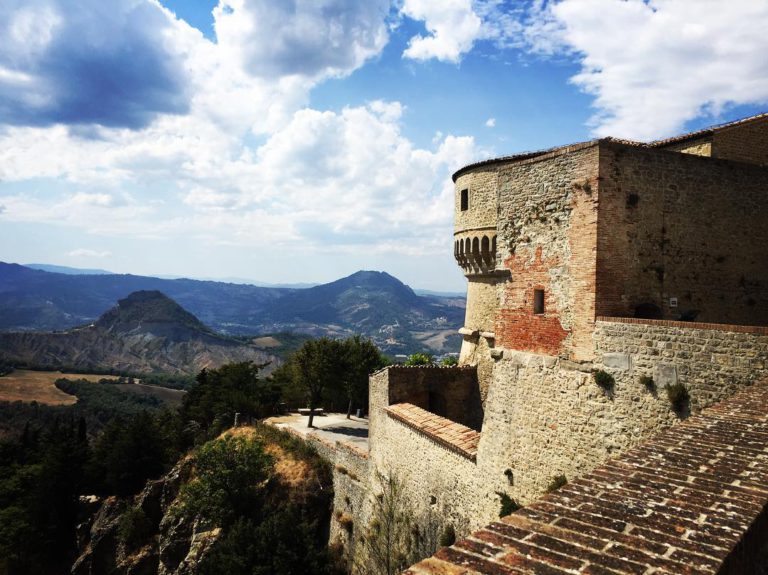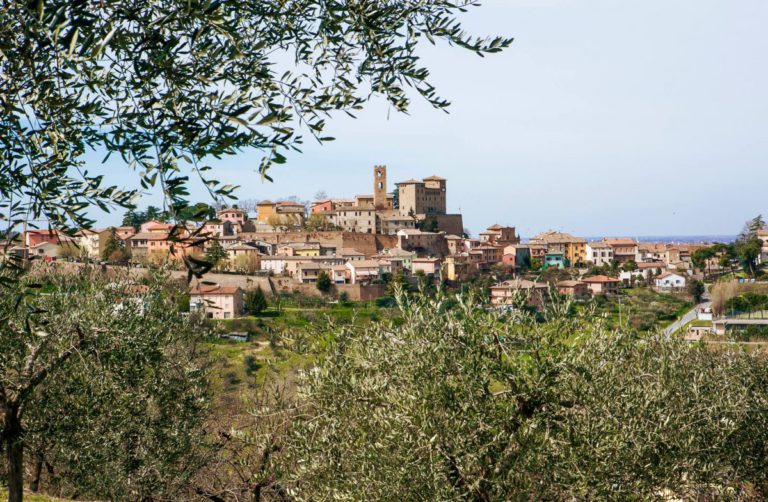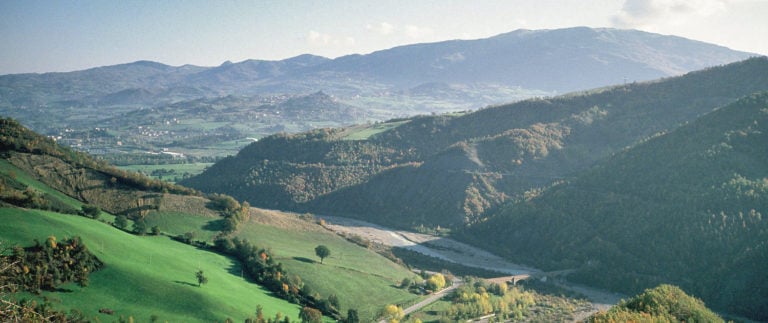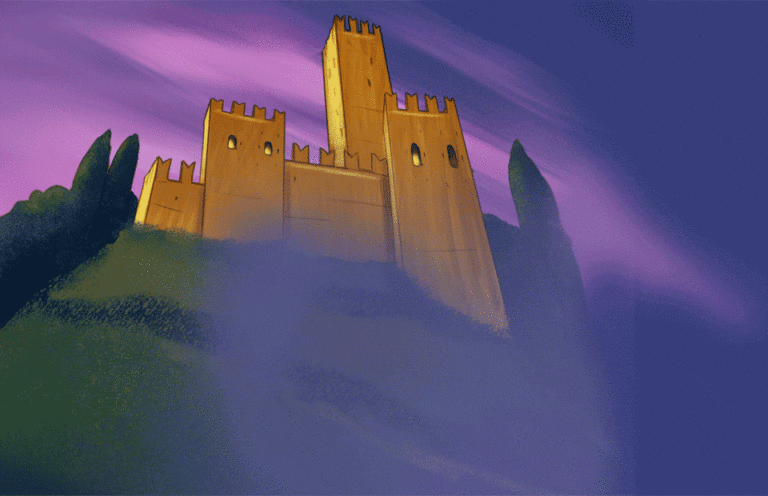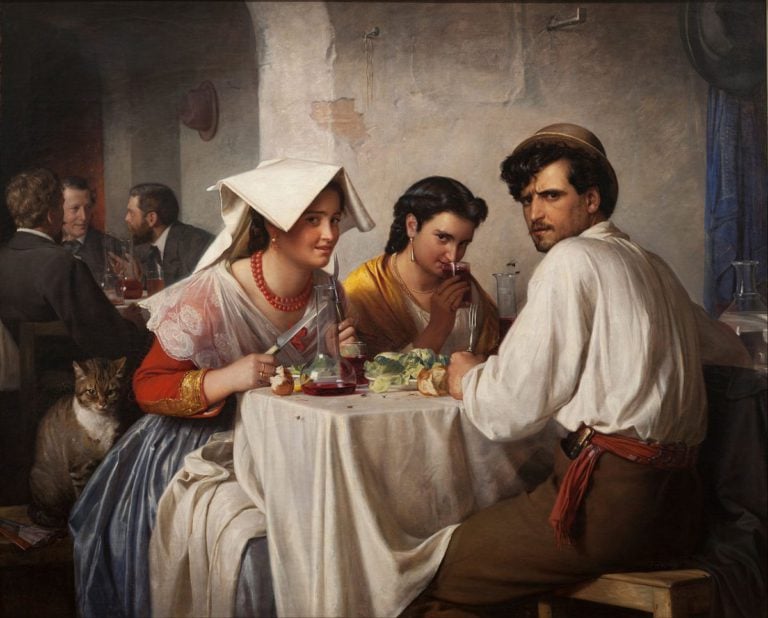“sky-coloured eyes and light hair with pale blue reflections…”
(Mons belli et Deline, 1620)
Rimini. Hinterland. On a hill dominating the green valleys around Marecchia river and the Uso stream rises the castle of Montebello di Torriana.
Considered as one of Romagna’s most interesting fortresses, it observes the surrounding territory of the Emilia-Romagna and Marche regions from its 436 metres of altitude.
A majestic and imposing aspect, typical of those military constructions of Medieval times. Its foundations are firmly anchored to the rock, motionless.
Called Mons Belli (lit. the Mount of War), the castle was an active protagonist of the events that characterised this territory between the 12th and the 15th century.
It often changed its owner, and became thus part of the internal strives between the lords of Rimini (the Malatesta family) and the Duchy of Urbino (the Montefeltro family). After the 16th century, it finally passed into the hands of Counts Guidi, who have owned the castle since then.
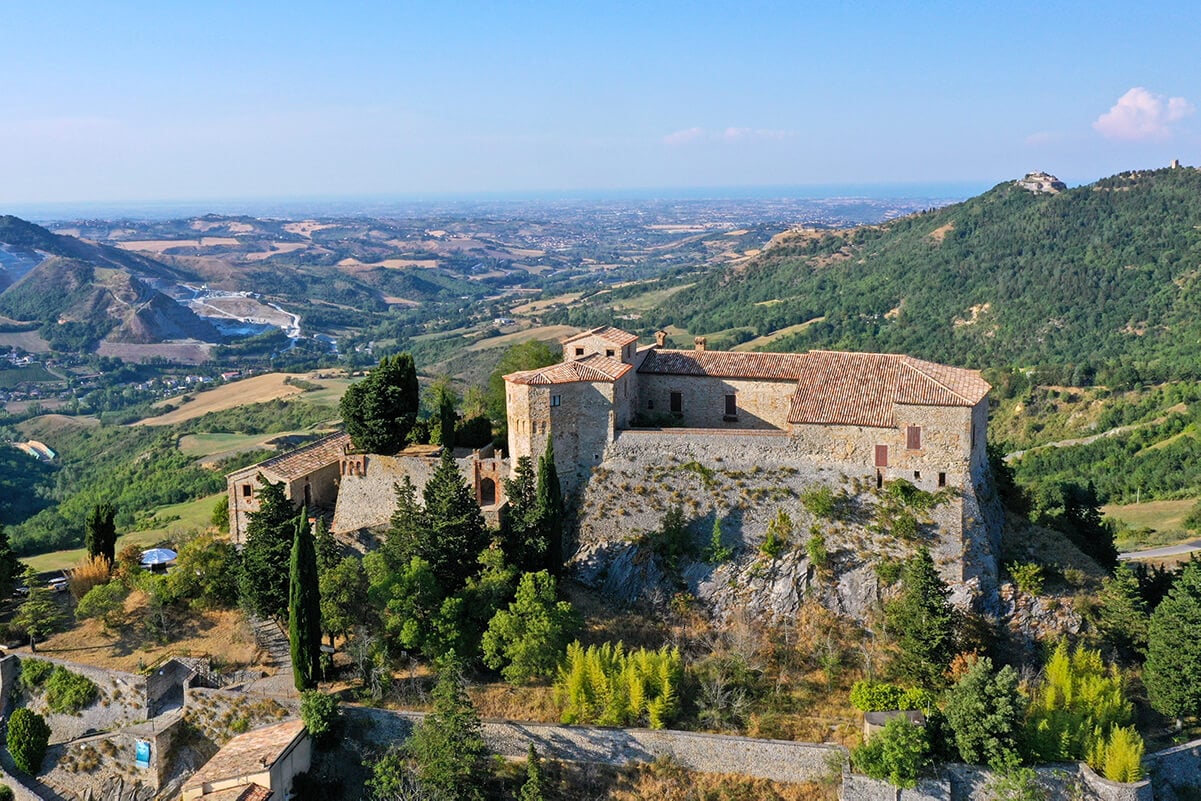
Apart from its indisputable historical charm, this castle became famous because of a mystery, a disappearance that has become legendary by now.
We’re at the beginning of the 17th century. A parish priest, who is gathering legends about Val Marecchia, writes the history of a certain Guendalina, daughter of Costanza and Ugolinuccio Malatesta – Lords of Montebello, who has gone missing on an early-summer day in a document called “Mons belli et Deline”.
The child, who was probably between 5 and 8 years old, has never been found.
Legend has it that since then, her ghost can be heard, and in some cases even seen, every five years in the rooms of the castle in which she got trapped.
But let’s start from the beginning…
Azzurrina’s disappearance
According to what the parish priest wrote, the real name of the child was Adelina, or Delina, both diminutives of the name Adele, which was much used in Medieval times. But it was probably guesswork, as until then history had only been told orally.
The first book in which Guendalina’s history appeared was written by Tommaso Molari at the beginning of the 20th century and was called “Memorie sul Castello di Montebello di Romagna” (lit. Memories from the Castle of Montebello di Romagna”). It was a collection of folk tales about the little hamlet of Montebello.
According to the book, Guendalina disappeared on 21st June 1375 in the snowfield of the ancient castle, as she was playing with a ball of cloths.
The child was considered “strange” for the times. Apparently she was albino: her face was translucent, her hair white and her eyes enormous and blue. These characteristics were likely to isolate her from society, taking her to death.
In order to protect her from the judgements of others, her parents decided to colour her hair with a dye made of herbs, which – reacting to sun and air – rapidly gave her hair light-blue reflections, arousing even more suspicions in the looks of others.
More and more concerned about her, Costanza and Ugolinuccio Malatesta decided to keep her hidden, making two guards – Domenico and Ruggero – watch over her. They affectionately started to call her “Azzurrina”.
Locked up in the rooms of the castle, the child spent the following years guarded day and night, until one day she suddenly disappeared, with no one knowing anything about her or finding her body.
Since then every five years, on 21st June, at the summer solstice, the child’s voice desperately echoes through the rooms of the castle, attracting curious people and passionate for paranormal who gather here to try to investigate the origin of the phenomenon.
As hard as it is to understand the truth about this mystery, it is conceivable to think that the oral transmission of the legend helped to enrich it with details, some of which are inaccurate and hard to prove.
Paranormal qnd mystery: Azzurrina’s voice
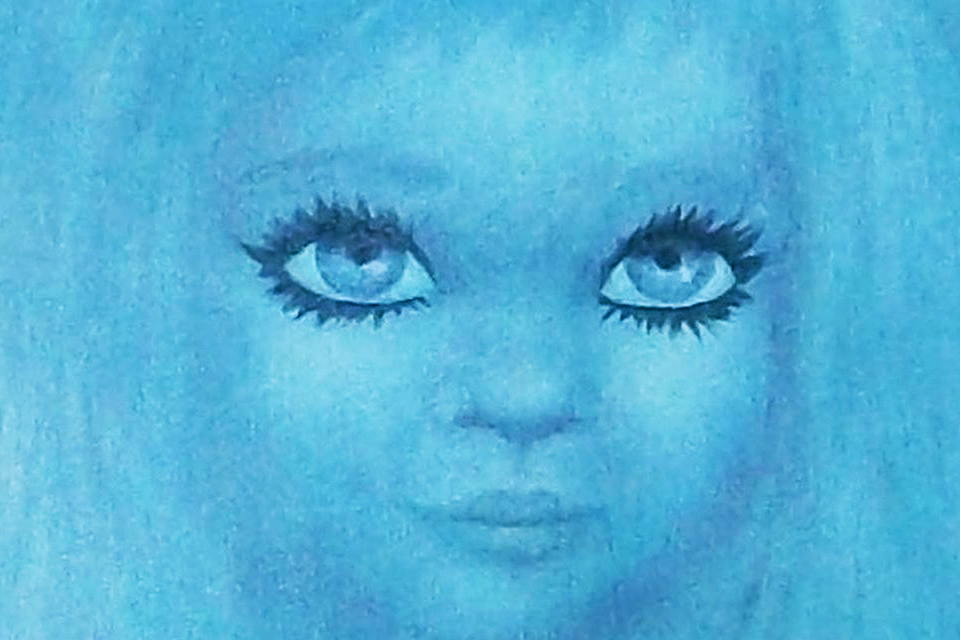
The first experiments were carried out in 1990. The castle had been opened as a museum for just a year.
On 21st June, some curious sound technicians turned up at the castle and made recordings with professional equipment.
As they studied the results, they heard something that was never heard before: thunders, pouring rain and then an awkward sound…
As proof of the facts, new recordings were made in the following years (in 1995, 2000 and 2005), and they all gave the same result: the tapes all recorded the voice of a child.
Scholars and researchers of paranormal activities, mediums and pranotherapists came to the castle to carry out new experiments, arousing the interest of various radio and television programs.
Also C.I.C.A.P. (the Italian Committee for the Investigation of Claims of the Pseudosciences) took an interest in the mystery. On 21st June 2010 it carried out some experiments by recording the alleged paranormal phenomena, but – as opposed to its predecessors – didn’t record anything…
Visit the castle of Montebello
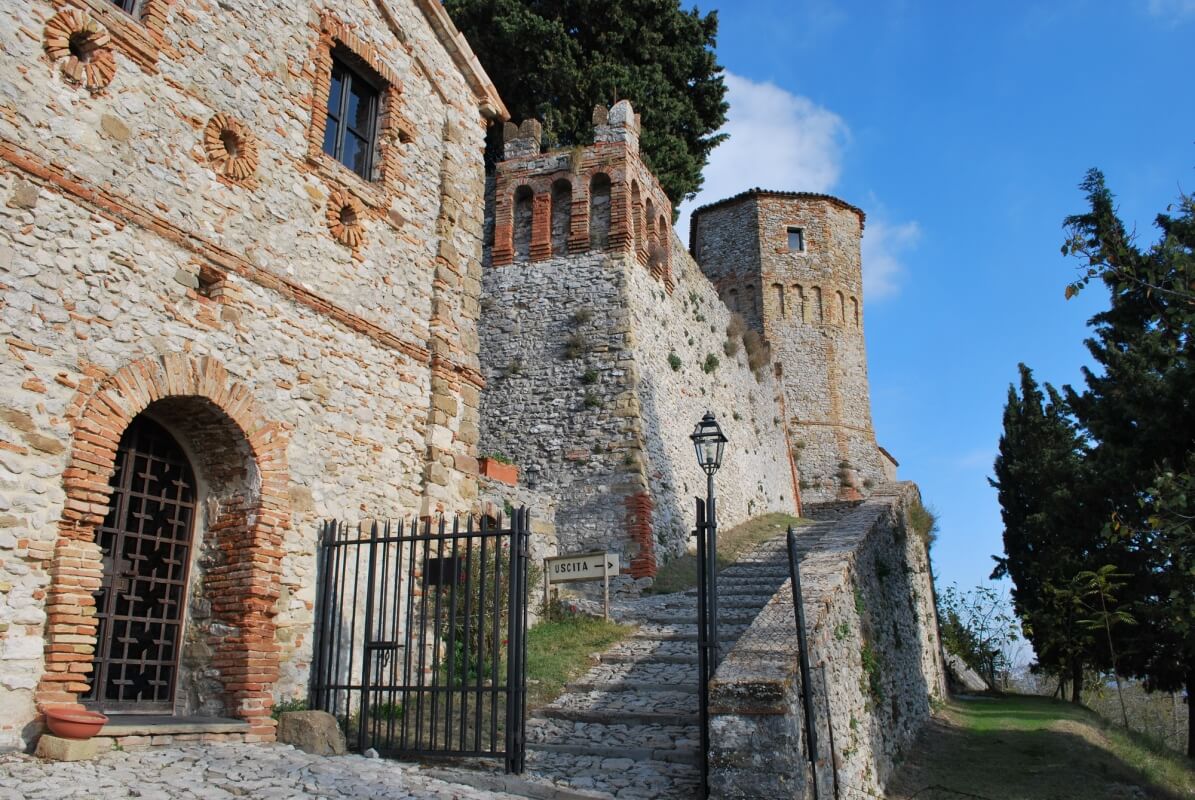
Apart from Azzurrina’s legend, the castle of Montebello holds many surprises, thanks to the treasures and secrets that it hides.
Thanks to a rich programme of guided tours, both by day and by night, organised all year round, it is possible to admire all the rooms of the castle, and the original furniture ranging from the 14th to the 19th century.
The tours obviously tell Azzurrina’s legend, with details on the research carried out throughout the years and the recordings that were made. Some hear a child crying, some a laugh, some a voice or a word; others, instead, claim they don’t hear anything.
The night tour, which is intended for a public of adults, also narrates violent events taking place in Medieval times and the paranormal aspects lingering in the castle, making visitors freely interpret and evaluate the whole story, which still preserves a certain charm and an aura of mystery.
Author
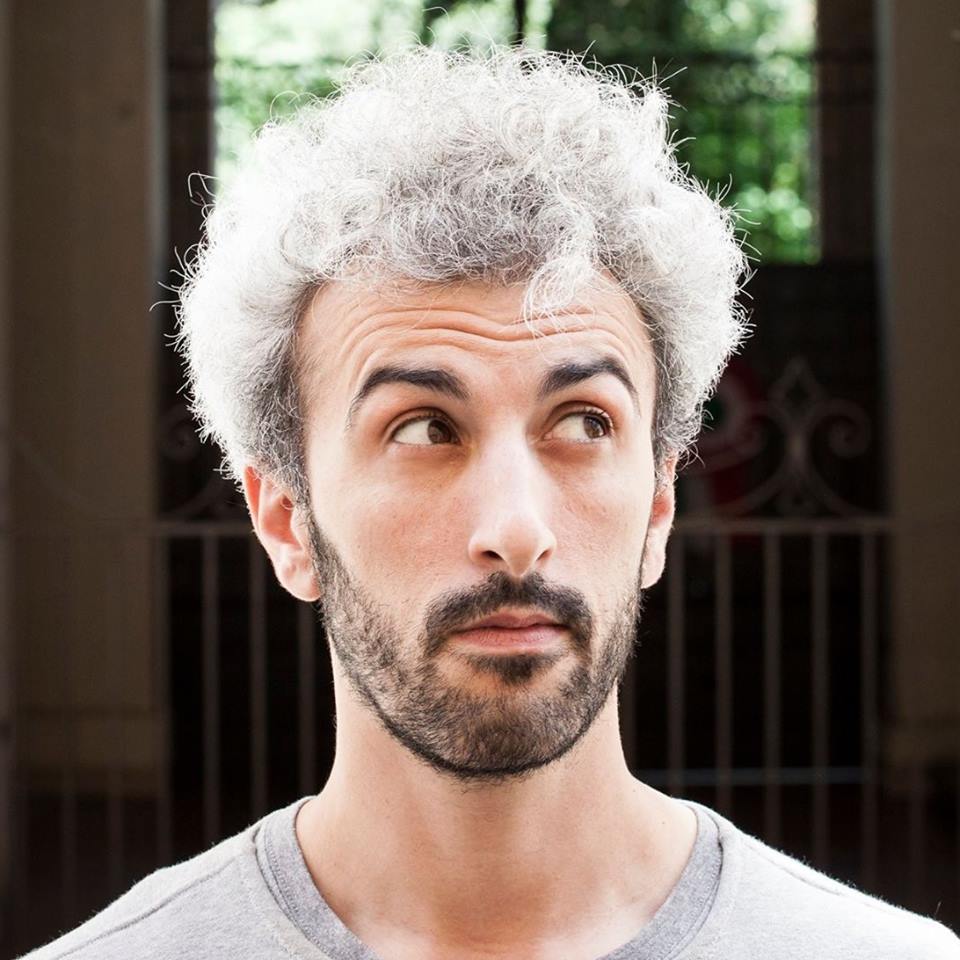
Davide Marino
Davide Marino was born archaeologist but ended up doing other things. Rational – but not methodic, slow – but passionate. A young enthusiast with grey hair
You may also like
10 unmissable Castles of Malatesta lordship
by Walter Manni /// September 5, 2013
8 unmissable Castles in the lands of Guidi and Malatesta
by Walter Manni /// April 13, 2018
Dolce Vita in Valmarecchia: an itinerary among hamlets and hills
by Elisa Mazzini /// June 7, 2016

Interested in our newsletter?
Every first of the month, an email (in Italian) with selected contents and upcoming events.
Castles with ghosts in Italy – a thrilling experience in Emilia Romagna
by Elisa Mazzini /// October 22, 2020

